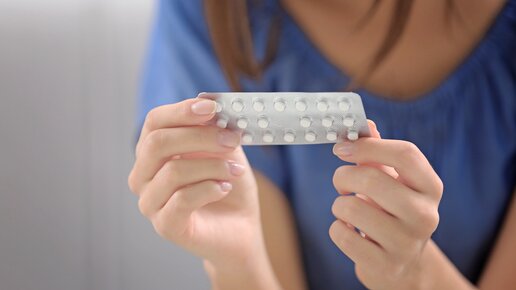Hanna and Moritz were on cloud nine. They had just recently met through mutual friends and could hardly keep their hands off each other. But as everyday life became more pressing the fire of passion gradually cooled. The end of the world? No, often just the natural course of things. But what do you do if sexual desire disappears and a there is a permanent lack of desire in bed? We are on the track of desire and have a few tips to blow life into those dying embers.
All about desire – and what loss of libido really is
While couples who are newly in love can scarcely keep their hands off each other, a certain routine creeps in over the course of a relationship – not only in everyday life, but also in sexual matters. When stress and worries make life difficult or when your hands are full with the children, sex and passion are often put on the back burner. Everyone has more or less sexual desire at different times. This is quite normal and occurs in the best relationships. However, if a lack of desire in bed becomes a permanent condition, you should take a closer look at your love life.
Physicians refer to so-called loss of libido when people have noticed a reduced sexual desire for a period of at least six months. Many of those affected complain of a certain lack of intimacy, usually even suffer from their lack of desire, which can lead to arguments and lack of comprehension in every relationship in the long or the short term.
Causes of sexual aversion in men and women
Like love itself, the causes of a lack of desire are also diverse. Behind the “lack of action in bed” there is generally not just the one cause alone. There are usually several factors that come into play.
Possible physical desire killers:
- Drugs, alcohol and/or nicotine consumption
- Too little/too much exercise
- Obesity
- Chronic fatigue/lack of sleep
- Certain medications
- Hormonal imbalance
- Pain during sex
- Inability to orgasm
Possible psychological and social desire killers:
- High stress levels
- Disagreements and conflicts in the relationship
- Family stresses
- Pregnancy and period of new parenthood (partially hormonally influenced)
- Lack of body sensation
- Negative experiences in childhood or in previous sexual relationships
- Lack of self-confidence
- Bad mood
Reasons and possible causes for sexual aversion in women
According to surveys, around 30% of women between the ages of 18 and 59 suffer from (temporary) loss of libido. The following components can play a role in the female sensation of desire:
The cycle of desire: The mood of young women changes with their cycle. While at the beginning of the cycle – that is, during menstrual bleeding and when there are low oestrogen levels – there is a tendency to have little desire in bed, after which the level of oestrogen, which acts as a “stimulator”, rises around the time of ovulation, then falls once again.
Towards the end of the cycle some women battle with PMS and sex is just about the last thing they have on their minds. Others, on the other hand, are absolutely bursting with sexual desire, since their abdomen is particularly well supplied with blood before menstruation and the formation of the ovum.- Mood killer pill: The natural mood swings described only apply, of course, if the woman is not using (hormonal) contraception. Women who depend on hormonal contraceptives tend to suffer from a decrease in sexual drive due to the artificially created testosterone deficiency.
- Applying the brakes on desire – menopause: Around the middle of their lives women experience a drop in their hormone balance. However, no slump kicks up as much dust as that of the sexual hormones. Numerous women complain of vaginal dryness and a loss of libido in the course of this hormonal change. However, since the book and movie "Die Lust der Frauen [The desire of women]" it has become clear that the loss of libido does not affect all menopausal women by a long chalk.
- Pain during sex: Pain during sex can be a real mood killer and even the strongest of libidos isn’t much help here. If pain is a barrier to your love life, gynecological advice should be sought to reveal any possible causes. An advisory discussion can offer support.
Reasons and possible causes for lack of sexual desire in men
"Men want sex all the time, women only sometimes." As the secret victims of this societal paradigm, many men shy away from going to the doctor or therapist if they are lacking in sexual desire. This lack of honesty makes it difficult to state reliable numbers for a man's lack of desire. However, according to estimates and depending on the age group, between 14 and 17% are frustrated by their own lack of desire.
In men, a reduced sexual urge is often associated with a lack of drive. They may have too much stress on their shoulders or generally not feel well or be slightly out of sorts. Low testosterone production could also be the cause of this. The level of the hormone that makes a man a man can decrease with advancing age – a decrease that can also negatively affect their sex drive.
Tips: This is how to awaken your slumbering desire
- Relaxation & sleep: Empty your mind of everything but desire
Desire and sexuality have their roots in the mind. So it’s no wonder that you’re hardly in a state for sex if you’re stressed or overtired. Conversely, relaxation and sleep are forerunners of desire. No matter what form of inner balance you choose – whether it’s exercise in the fresh air, forest walks, gentle yoga or a bubble bath with a romantic novel – self-care as the key to opening up desire is entirely down to the individual. - Plant extracts: Natural power as the way forward
Plants can help you find the way back to your sensuality, according to the motto “There’s a herb for every ill”. Plant extracts from ginseng and guaraná reduce tiredness and contribute to maintaining physical and mental vitality. Maca also supports physical and mental performance. Encouraged and refreshed from within, the way is paved for desire. - Let’s talk about sex, baby: The brakes and the accelerator of sex
Desire or lust is not a mere urge, not a purely physical process. Both are strongly influenced by context. For this reason, it is helpful to think about what inspires your own desire and what slows it down (see reflection exercise in the knowledge box). Thus, you should openly exchange ideas with your partner. Even this talk about sex – the open expression of desires and wishes – can inspire your love life. - Loosen up – and cuddle sex stress away
Those who accept that it is absolutely normal for the sex urge to diminish in the course of a relationship will save themselves a lot of pressure. At the same time, the relationship should give more space and time to cuddling and pampering – without any pressure to perform, without a goal. Mutual touching, massaging and cuddling make both partners more open to physicality and desire. In addition, these expressions of love release the social bonding hormone oxytocin and the happiness hormones, which in turn can positively influence the libido.
What should you do if everything fails?
If you cannot find a reason for the loss of libido and yet it persists, it is best to see a medical or therapeutic specialist. They can clarify whether there is a possible disease behind this lack of desire or whether certain medications are affecting your libido. They can also determine whether your listlessness is based on a hormonal imbalance. If social or psychological aspects are behind your lack of libido (e.g. problems with relationships, bad experiences), which you cannot resolve as a couple yourselves, consultants or therapists can also be enormously helpful here.
Knowledge box:
The Dual Control Model of Sexual Response reflects the idea that the sexual reaction of individuals is the product of a balance between arousal and inhibiting processes. A constantly growing number of studies shows that these two systems work independently to a certain degree and that people differ in their sensitivity to them. The researchers compare this with a gas pedal (arousal or SES – sexual excitation system) and a brake pedal (inhibition or SIS – sexual inhibition system) in a car. In a certain sexual situation, each person activates one or both pedals to varying degrees, depending on their unique sexual physiology, history and personality.
Reflection exercise:
What slows my desire? Sexual brakes
- What situations and circumstances inhibit my desire?
- What environment inhibits my desire?
- For example, if I know that my children could knock on the door or the phone could ring or the light is too bright, this can quickly become a turn-off.
What releases my desire? Sexual accelerator
- What environment do I need?
- What setting? What gets me in the mood?
- What about my general well-being and what can I do to feel better?
When I create an environment in which I feel really relaxed, I often deal much better with desire.
Literature on request from the author.











